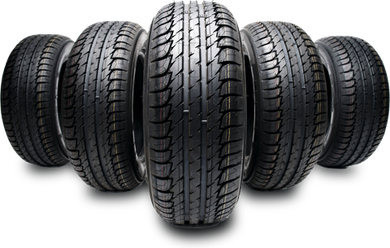Get Expert Tire Services at Tire Shop Morris: Complete Satisfaction Ensured
Get Expert Tire Services at Tire Shop Morris: Complete Satisfaction Ensured
Blog Article
Tire Solution: Recognizing Tire Stress Surveillance Solutions
Recognizing Tire Pressure Monitoring Systems (TPMS) is a vital facet of keeping optimum lorry performance and safety on the road. With improvements in auto modern technology, TPMS has actually come to be a typical function in modern vehicles, providing real-time information on tire stress levels.

Relevance of TPMS
The relevance of Tire Stress Surveillance Equipments (TPMS) lies in their ability to boost car safety and efficiency through real-time monitoring of tire pressure levels. Keeping the right tire pressure is crucial for ensuring optimal handling, braking, and total safety and security of an automobile. TPMS offers chauffeurs with immediate feedback on any kind of underinflated or overinflated tires, enabling prompt adjustments to be made.
Components of TPMS
Comprising numerous necessary aspects, a Tire Stress Tracking System (TPMS) operates as a sophisticated security function in modern-day cars. The major parts of a TPMS include sensing units, a control module, and a caution indicator. Sensing units are typically located in the tire shutoff stem or connected to the wheel setting up, where they determine tire stress and send information to the control module. The control module procedures this info and activates a warning if it discovers dramatically low pressure in any of the tires. The warning indicator, usually a symbol on the dashboard, notifies the vehicle driver to examine the afflicted tire or tires. Some advanced TPMS models additionally show the actual tire pressure readings for each tire, providing chauffeurs with real-time information to make sure optimal tire efficiency and security. By keeping an eye on tire stress continuously, TPMS aids protect against crashes, lowers tire wear, and boosts fuel efficiency, making it an important component for lorry safety and security and performance.
Kinds Of TPMS

On the various other hand, indirect TPMS relies on the car's wheel rate sensing units to keep track of tire pressure. This system finds underinflation by contrasting the rotational rates of the wheels. Indirect TPMS is much less costly than direct TPMS, as it utilizes existing sensors within the car.
While direct TPMS uses extra exact analyses, indirect TPMS is less complex in layout and commonly requires much less upkeep. Both systems have their benefits and limitations, and the selection in between them commonly relies on variables such as price, lorry make, and individual preference. Comprehending the differences between these two kinds of TPMS can aid lorry proprietors make educated choices pertaining to tire upkeep and security.
TPMS Maintenance Tips
Conduct routine checks on the tire pressure levels and compare them with the TPMS readings to ensure they are constant. Throughout tire turning or substitute, make certain that the TPMS elements are dealt with thoroughly to stop any kind of potential damages. If the TPMS warning light illuminates on the dashboard, deal with the problem immediately by inspecting the tire pressures and the overall system for any faults.
Benefits of Correct Tire Pressure
Maintaining correct tire pressure, as emphasized in TPMS Maintenance Tips, is essential for reaping the countless advantages connected with optimal tire stress degrees. Among the primary advantages of preserving the proper tire pressure is improved fuel efficiency. When tires are properly blown up, there is much less moving resistance, causing much better fuel economy. In addition, correct tire stress makes sure even tire wear, extending the life-span of read this post here the tires and advertising safer driving conditions. With the right tire stress, automobiles also have better handling and grip, particularly in adverse weather. This can enhance total driving performance and safety for the vehicle driver and travelers. Additionally, keeping ideal tire pressure can add to a smoother and a lot more comfortable ride by minimizing vibrations and sound triggered by underinflated tires. To conclude, the why not try this out advantages of appropriate tire stress exceed just tire durability; they incorporate enhanced gas efficiency, improved safety, far better vehicle efficiency, and total driving comfort.
Final Thought
Finally, understanding tire stress monitoring systems (TPMS) is vital for keeping optimum tire stress and ensuring car security. By recognizing the significance of TPMS, knowing with its elements, understanding the various kinds readily available, sticking to correct upkeep ideas, and understanding the advantages of maintaining proper tire stress, drivers can boost their driving experience and lengthen the life expectancy of their tires. Correct tire stress is crucial to risk-free and effective lorry procedure.

Report this page